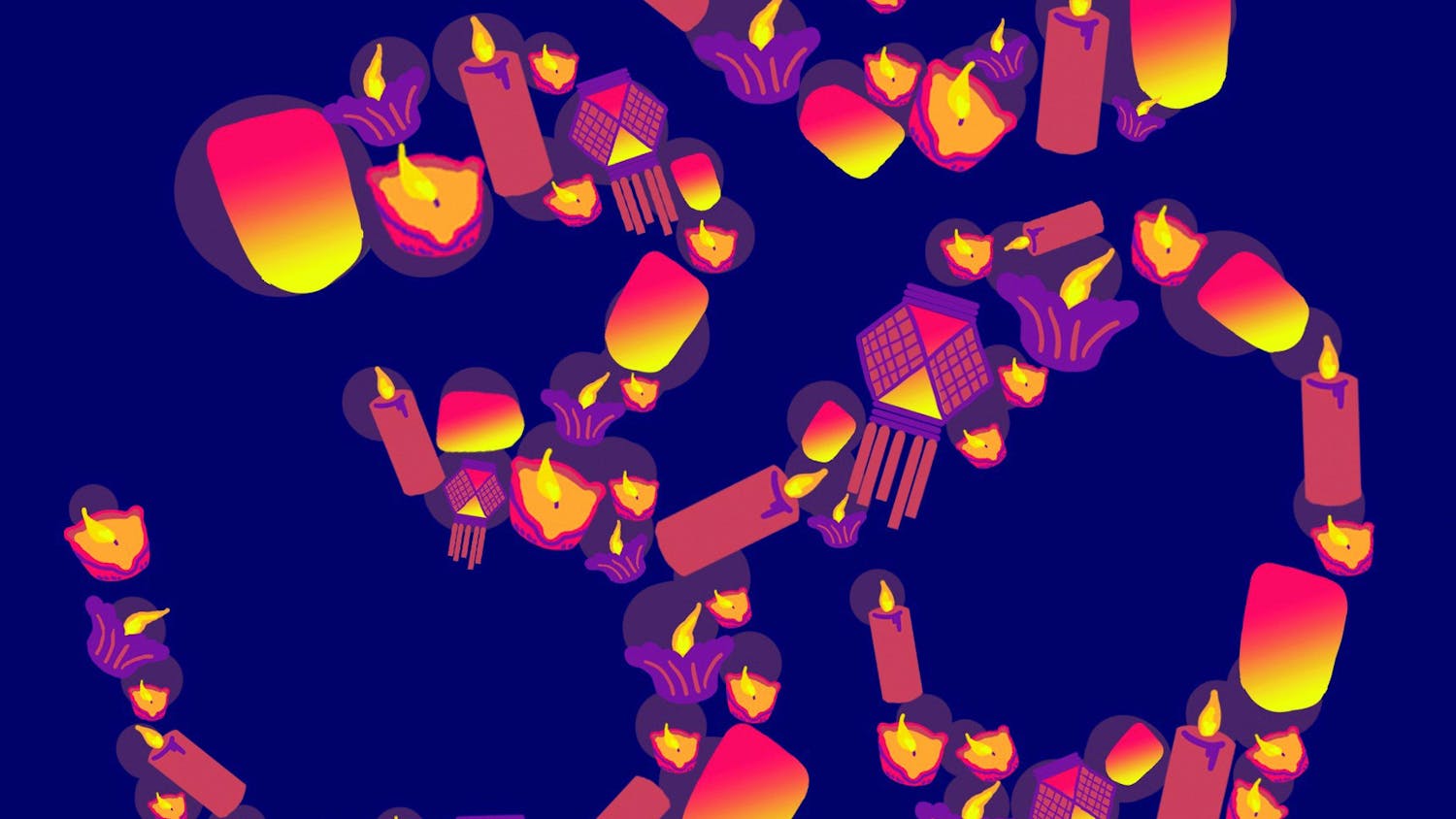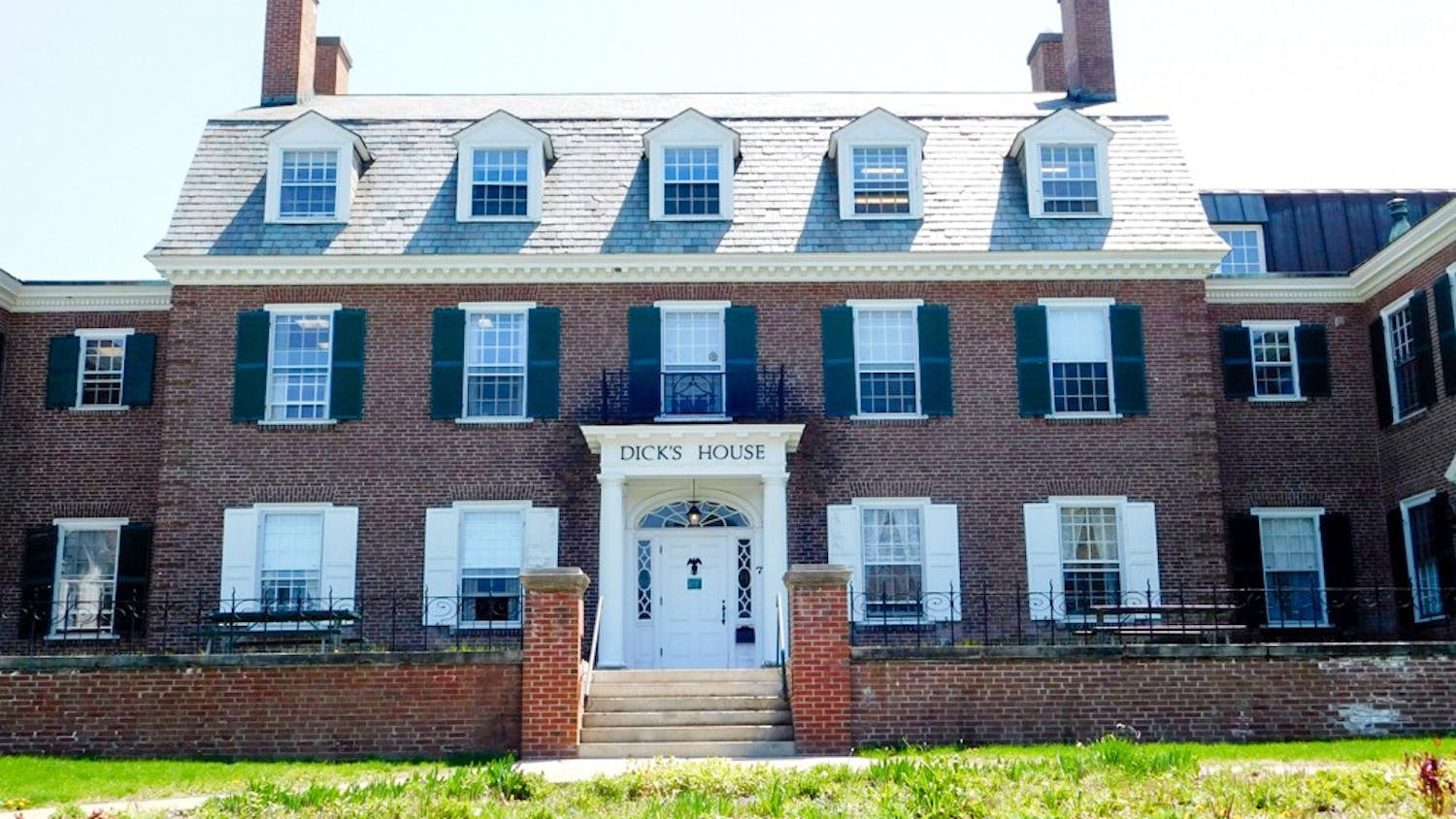Today is Día de Los Muertos, the Mexican holiday celebrated throughout Central America, honoring those who have passed on. Last week was Diwali, the Hindu Festival of Lights, a celebration of new beginnings, the prevailing of good over evil
Signs and celebrations of both can be found across our small campus, here in our neck of the woods. Diwali lights were organized all over the Green on a chilly, twilight evening last Saturday. Colorful paper decorations and skulls brighten up the first floor of Baker Library, and will have continued celebrations at La Casa tomorrow. Though Latinx and Hindu populations, outside of Dartmouth’s student body, are quite small in the Upper Valley, such vibrant cultural activity here in the Upper Valley has surprisingly sustained a strong presence. The College currently houses 25 different religious groups all housed under the umbrella of the “United Campus Ministry.” Additionally, the Tucker Center for Spiritual and Ethical Life hold Speed Stories, Voices of Faith panels and spiritual advising for students.
It’s important that we appreciate the diversity of faith and culture that students have brought to this campus, and we call for continued efforts to bring more voices to the table.
Dartmouth’s history has only recently included different religions. For its first two centuries and then some, this community did not possess visible critical mass of non-white, non-male, non-straight and non-cisgender people. Just as one example, Diwali was not celebrated formally on campus until as recently as 2006, and yet many, if not most, current Dartmouth students would be shocked to not have such observances occurring on campus.
We have taken our religious diversity for granted, and we still have yet to prioritize these culturally rich opportunities. As Dartmouth students surrounded by numerous spiritual and cultural experiences, it is a privilege to learn about other faiths and important to remember just how recently our campus was closed off to some of them.
It is important to recognize how far this community has come. It is also important, however, to recognize what is left to do.
Diversity is an attitude, not a number. Simply possessing critical mass of students of a single demographic for them to host their own events does not mean that their culture or lived experiences are fully integrated into or considered in our community. Even if there are groups that students may practice their faith and culture with, those can still be isolating. Students should not have to find faith-focused communities — even when those communities are doing great work, like the Tucker Center for Spiritual and Ethical Life — to feel seen or prioritized. Students are multi-dimensional, and one’s faith and culture should be a part of who they are, never composing the entirety of an identity. Students should not be asked to choose to sacrifice one identity for another. An example is the academic calendar: students might have to leave a religious celebration with their community on campus to return home and finish writing a paper.
The academic calendar is not drawn with respect to these religious holidays, even though there are observances happening on campus. While the valid counterargument is that it would be impossible to structure Dartmouth’s rigorous 10-week terms around every religion that is represented on this campus, it is still an important point to consider: Though our community is diverse, it is still fragmented into diverse and disparate communities. Just because there is not one clear solution to this problem, does not mean that it is not impacting some students more than others.
This editorial is merely a meditation on the state of our campus, as rich in life experiences but quite poor, often, in perspective. Too often, discussions that start with “look how far we’ve come” spiral into a call to settle for meagre progress made. Instead, we hope that by looking to our recent past and not liking what we find, we will head toward our near future with more thoughtful actions. Members of this community should not only be inclined to attend one of the religious services and gatherings on this campus for a particularly special holiday — rather, these events should serve as reminders that we have a diverse community. We encourage the community to go further — to engage with diverse perspectives through classes, clubs and discussion with friends — and to be friends with people different from them.
The lack of integration we are frustrated by will probably not be fixed by a new academic calendar that works around high holy days. Perhaps we can start with interest in the world outside our narrow lived experiences.
The editorial board consists of the opinion editors, the executive editor and the editor-in-chief.



